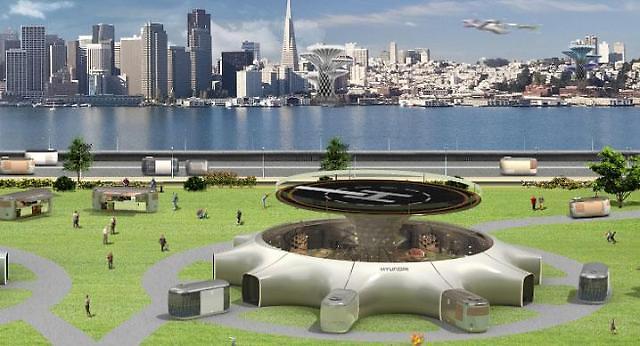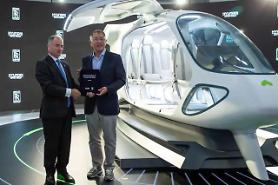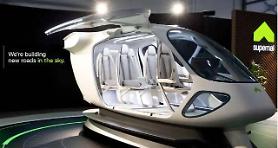
[Courtesy of Hyundai Motor Group]
Urban air mobility (UAM) is an ecosystem involving flying passenger vehicles in urban areas. Advanced air mobility (AAM) builds upon the UAM concept by incorporating use cases not specific to operations in urban environments. Hyundai is a member of UAM Team Korea, a public-private consultative body that will commercialize drone taxis in 2025.
The stock swap, announced on September 7, involved Hyundai Motor and its parts-making subsidiary, Hyundai Mobis. It is aimed at advancing technologies for realizing mobility, electrification, connectivity, and autonomous driving in the automotive industry.
Hyundai Motor and Hyundai Mobis will work with KT to conduct joint research and demonstration to develop new services suitable for connected cars and 6G communication standards optimized for autonomous vehicles. Connected cars require the collection of huge amounts of data and an over-the-air (OTA) update solution for the wireless delivery of new software, firmware, or other data to mobile devices.
Hyundai Mobis operates a consortium with domestic software developers to localize core technologies for software platforms, such as OTA updates for autonomous driving. KT will establish a control and communication network linked to communication satellites, while Hyundai is in charge of vehicle development and the construction of vertical takeoff and landing sites.
In July 2022, KT tied up with Hanwha Systems to commercialize laser-based wireless quantum cryptography communication that can be applied to low-orbit satellite communication, autonomous driving, and UAM. Quantum cryptography has emerged as an essential solution for safeguarding critical information. Researchers have tried to find a new method of integrating quantum cryptography into wireless networks.
Copyright ⓒ Aju Press All rights reserved.



